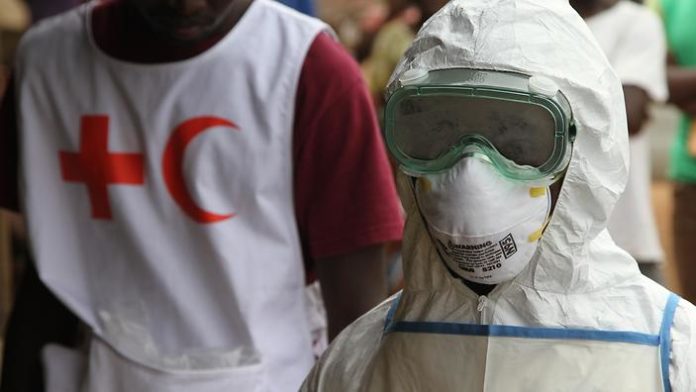
Ebola workers in Guinea are being attacked an average of 10 times per month, the Red Cross said Thursday, warning that the ongoing violence threatens efforts to stop the spread of the disease.
The most recent incident took place last Sunday in the town of Forecariah, western Guinea, where two workers were beaten while trying to conduct a safe burial for Ebola victims, the International Red Cross said in a statement. Ending traditional burials is seen as crucial to stopping the spread of the latest outbreak, which has killed more than 9,100 people, mainly in West Africa, because rituals often involve extensive contact with highly contagious corpses.
The disease is so new to this part of the world and so terrifyingly lethal that many people fear all outsiders associated with Ebola, even if they are coming to help, the Red Cross said. In addition, many people in these communities may not be familiar with even basic biological concepts of disease transmission, and Ebola is contradicting what they do know — for instance, many do not believe it is possible for a corpse to spread the disease.
Officials say that locals, especially around the capital, Conakry, continue to hide sick friends and relatives from authorities. Hostility towards aid workers in the region is thought to be tied to a series of rumors and conspiracy theories, including the belief that the virus was planted by Western governments and that spraying disinfectants is part of a plot to infect locals.
“The Red Cross wants to kill us,” Lah Wiemou, an elder in the village of Ouye, Guinea, told Reuters. “They put the virus in the water and spray it around the village, or when they take away the sick, the medication they give them contains Ebola.”
According to Reuters, yet another attack took place yesterday in central Guinea, where crowds of residents attacked an Ebola facility and healthcare workers over concerns that they were planning to decontaminate a local school infected with Ebola.
‘As long as people have misconceptions about Ebola, we will not stop the disease’
While attacks on Ebola workers are not new, officials say the frequency and severity of recent attacks is alarming and threatens progress against Ebola by “giving the virus the upper hand“. In addition to the threat of violence, aid workers are also facing strong community resistance that has made it difficult — in some cases, impossible — to isolate and treat patients, and trace their contacts.
“As long as people have misconceptions about how Ebola is spread, and continue to prevent volunteers from doing their work, we will not stop the disease,” said Youssouf Traore, president of the Red Cross Society of Guinea. “We may have all the medical equipment we need to care for people, but until we change perceptions of the disease, it will not go away.”
In response to the recent attacks, the Red Cross is ramping up security for its volunteers. The charity said aid workers also are consulting more closely with communities, local authorities and religious leaders to try to dispel myths and false rumors about the disease.
Meanwhile, the number of new Ebola cases in Guinea has risen in the past few weeks after a long, steady decline. In its latest report, the World Health Organization said there has been a sharp increase of new Ebola cases in Guinea, with 65 newly confirmed compared with 39 the previous week.
The WHO said the increase has been driven mainly by transmission in the capital, Conakry, and in the western prefecture of Forecariah, where Sunday’s attack occurred.
Since the Ebola outbreak began more than a year ago, nearly 23,000 cases of Ebola and 9,162 deaths have been confirmed in Liberia, Sierra Leone and Guinea. The WHO said cases remain widespread in Sierra Leone, but have stabilized, while Liberia continues to report a low number of new cases.
